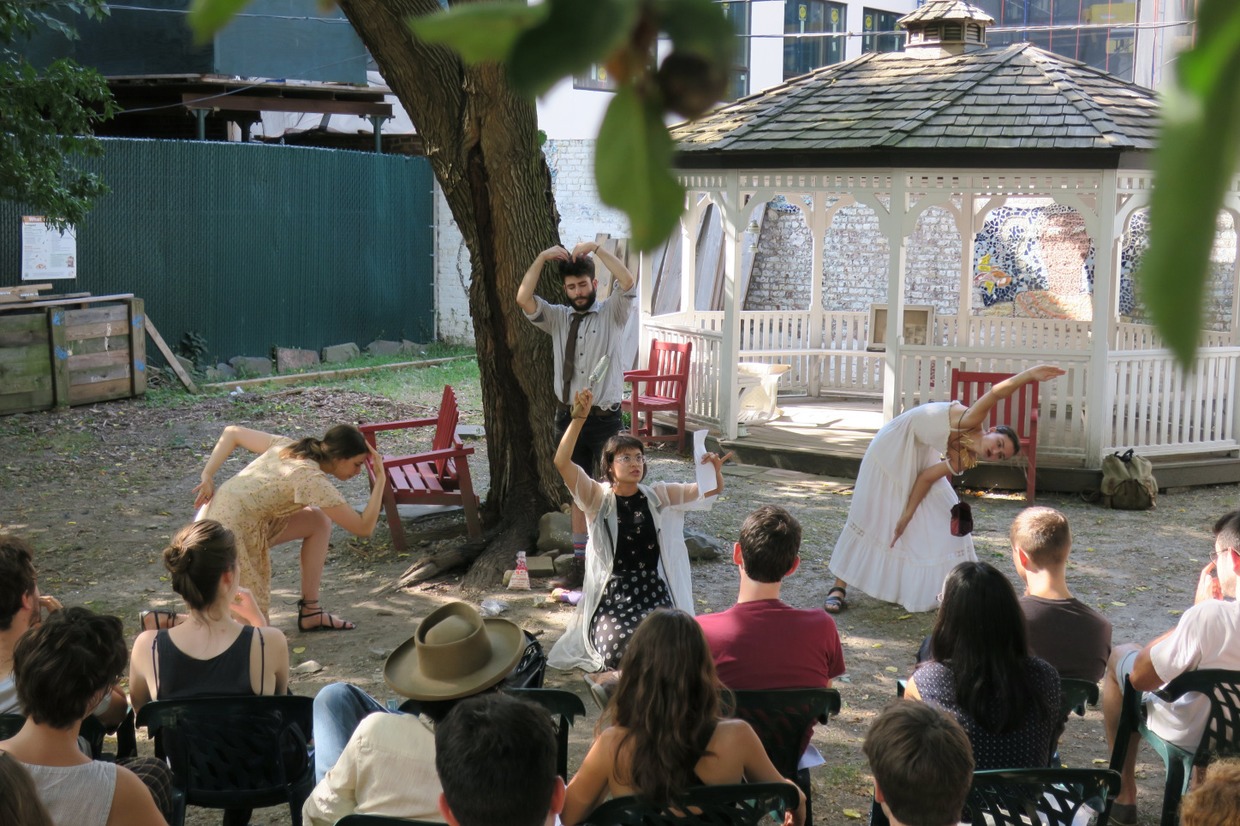Local filmmakers Michal Birnbaum and Tamar Glezerman will screen “Division Ave,” at the Chelsea Film Festival and Katra Film Series over the next two months. This piece illuminates the harsh realities of the modern day labor market in Williamsburg, and an unlikely friendship that emerges amidst oppression.
A few days before Passover, Fernanda, a young Mexican woman, is hired by a Brooklyn cleaning agency to work in the local Jewish Hasidic community. Despite a prolonged wait for her payment, Fernanda continues to faithfully show up for work each day at Nechama’s house. An unexpected connection between the two leads to a fight for justice against the cleaning agency at fault, bridging the gaps between their very different worlds.
Inspiration can strike at any moment. For screenwriter and actor Michal Birnbaum, the plotline for “Division Ave,” came at a local synagogue. Just before Passover, Rabbi Guy Austrian spoke to his community on the importance of paying domestic workers a fair wage. This sermon acted in response to a recent arrest: a Jewish man man was charged with exploiting domestic workers (“cleaning ladies”) on the corner of Division and Marcy Avenue in Williamsburg, Brooklyn.

Birnbaum instinctively knew there was more to this story, and thus began her research. Wage theft is not the only hardship facing this community, which consists primarily of Latinx and Eastern European workers. Many of the domestic workers are often subjected to harsh labor conditions, sexual abuse, and empty promises of consistent work.
“It is indeed a very delicate subject to navigate. You see, in the Hasidic world, the woman is expected to take care of the house chores by herself, sometimes while raising as many as 10 children. They are usually not wealthy either. So they go to the corner to get cheap labor for $8-9 an hour.” Birnbaum explains the complex circumstances, “On the other hand, being undocumented, this at least gives them an opportunity for employment. We have a situation of the oppressed becoming the oppressors.”
As the story of the Hasidic world began to unfold, Birnbaum found herself seeking further answers to how this dynamic affects the immigrant workers. This search led her to Ligia Guallpa, Co-Executive Director of the Worker’s Justice Project, a Brooklyn-based immigrant rights organization. When asked the deepest threat for these workers, Guallpa states without hesitation, “Fear. On the worksite, unscrupulous employers perpetuate fear in the Trump era. It is very common for workers to be threatened with deportation when they attempt to recover their stolen wages and reclaim their dignity as human beings.”

There was too much at stake to let this story go untold. Glezerman and Birnbaum began production, working to bring these underrepresented, immigrant communities to the big screen. While the film certainly maintains a strong critique on these labor conditions, Glezerman reflects on its positive impact as well.
“My favorite experience regarding this film was a screening at the Worker’s Justice Project where women who actually work on Division Avenue watched the film and expressed their feelings of seeing themselves represented on screen.” The director details her goals, “I hope viewers gain some insight into the lives of marginalized women but come away from it with a feeling of hope at the idea of every day connection and solidarity.”
All images courtesy of Michal Birnbaum.
For more news, sign up for Bushwick Daily’s newsletter.





